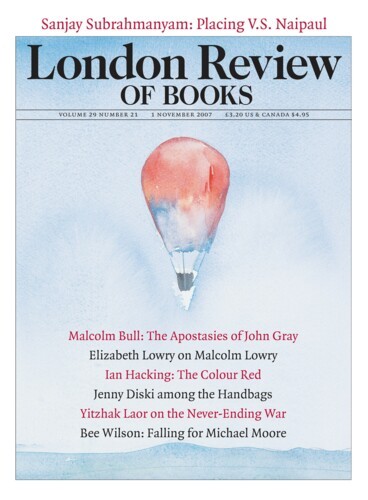Orchestrated Panic: the Never-Ending War
Yitzhak Laor, 1 November 2007
The 1967 war changed the lives of Israelis and made Palestinian lives hell. Shortly after it, Israel’s Labour prime minister, Levi Eshkol, a relative moderate, approved the colonisation of the West Bank. The Labour Party never really opposed the process, though for years it seemed to have its doubts. That way of carrying on – appearing indecisive, sounding hesitant, while acting...





